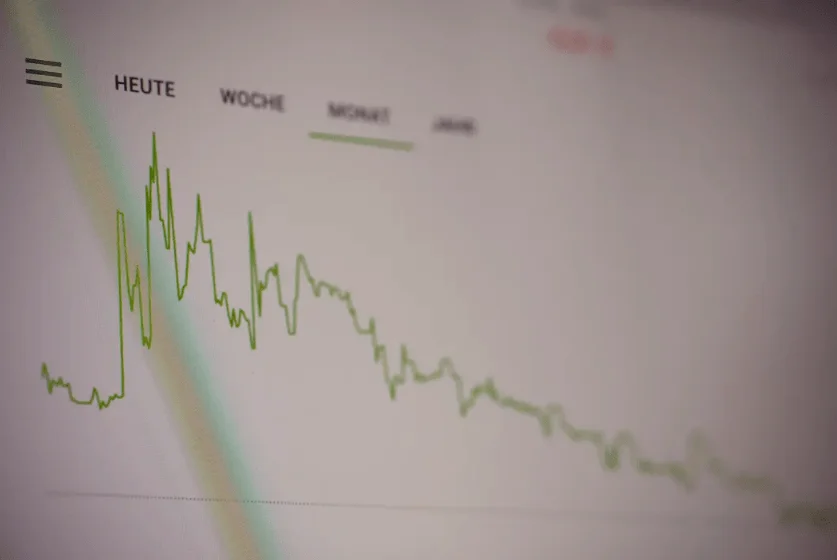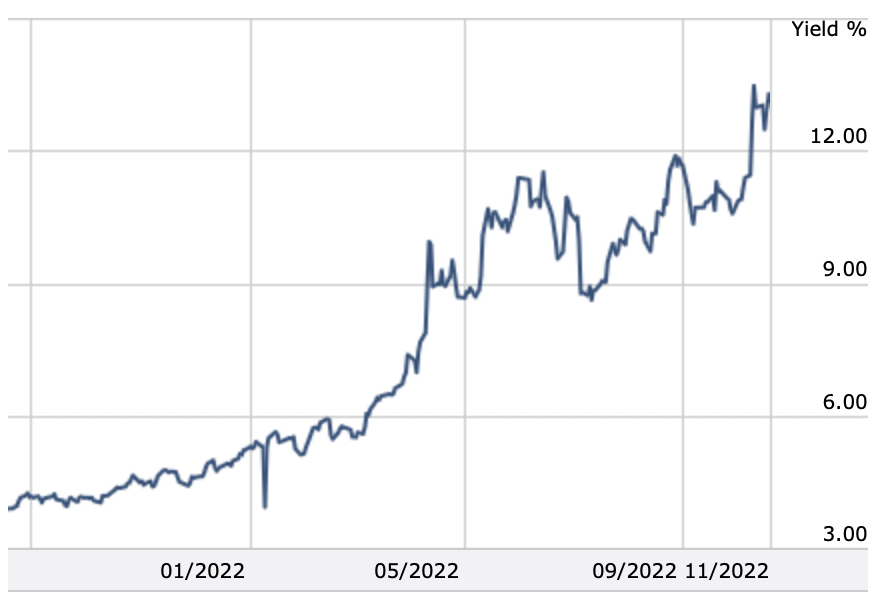One investor said that high bond yields are a sign of both sharply higher interest rates and institutional investors’ real doubts about how crypto will work in the long run.

Bonds issued by Coinbase (COIN), a cryptocurrency exchange, and MicroStrategy (MSTR), a business intelligence company that invests in bitcoin and is also a bitcoin investor, have fallen as investor confidence in the industry has dropped since FTX went bankrupt.
According to data from Finra-Morningstar, the price of Coinbase’s bond due in 2031 has dropped 15% this month, to 50 U.S. cents on the dollar. This has caused the yield, which moves in the opposite direction of the price, to reach a record high of 13.5%. The drop comes after almost three months of stability and is a continuation of the downward trend that started early in the year. The interest rate on the company’s 2026 bond went up to 17%.
Bonds related to MicroStrategy, a business intelligence company that owns bitcoin, have also been hit hard. As the price of bitcoin (BTC) dropped to a record 72.5 cents on the dollar on Friday, the yield on the company’s 2028 notes went up to 13.35%. These notes were issued last year to help pay for the company’s bitcoin (BTC) accumulation.
On its balance sheet, MicroStrategy has about 130,000 BTC, which is worth about $2.08 billion.
As of Friday, the companies’ bonds are worth about 10 percentage points more than the yield on a 10-year U.S. Treasury note. This is called a “premium.” In traditional markets, a premium at that level is seen as a sign of credit stress. At press time, the 10-year Treasury was giving a return of 3.80%.
“High bond yields are a sign of sharply higher interest rates, but they also show that institutional investors are skeptical about the long-term viability of crypto after the high-profile failures of Terra Luna, Celsius, 3AC, Voyager, BlockFi, and FTX,” said Mike Alfred, a value investor and founder of the digital assets investment platform Eaglebrook Advisors.

The digital assets exchange FTX, which was started by Sam Bankman-Fried, filed for bankruptcy on November 11. This made people worry about a market-wide spread. CNBC says that a well-known venture capital firm, Multicoin, which was one of many with FTX exposure, told investors that its net performance had dropped 55% this month and that FTX’s collapse would wipe out many firms in the next few weeks.
“Those bond yields were the first sign that the area was getting worse. It was the canary in the coal mine. Even before all the blow-ups this year, it was a sign of stress in the crypto space “Darius Sit, the CEO and founder of QCP Capital, a company that trades in crypto options, said. Sit said that his company would keep an eye on the yields because they could be “an early sign of recovery.”
Even though Coinbase may not be directly affected by the FTX collapse, it may be vulnerable to other bad effects, such as a drop in trading levels, that could make bonds or stocks from Coinbase seem like a bad idea. That’s what a lot of investors seem to be thinking, at least.
Goldman Sachs kept its “sell” rating on Coinbase shares last week and lowered its “12-month price target” from $49 to $41. They said that once the volatility caused by FTX calms down, the lower prices of cryptocurrencies and the possibility of less investor confidence will hurt trading volumes. Shares of Coinbase fell 31% this month, and on Friday they were worth $45.26.
The author of the popular Bear Traps report, Lawrence McDonald, tweeted on Sunday, “If you have capital at Coinbase, do your counterparty risk assessment now.” He said this after noticing the rise in bond yields and the drop in share prices.
